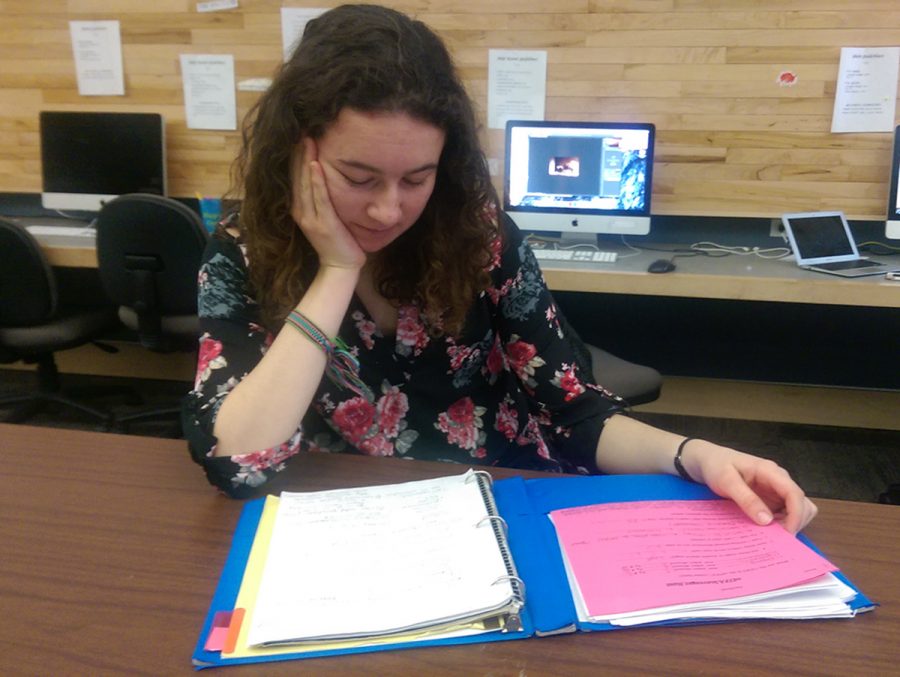A not-so-fine line exists between teachers and professors
One cares; and the other not as much
More stories from Elizabeth Gosling
Photo by Sydney Purpora
With all the love Gosling has for her university, she can’t help but miss her high school teachers and the relationships fostered through school.
As the semester starts, students of all races, ethnicities and creeds feel overwhelmed by the work laid out for them by professors.
As a future teacher, I appreciate school and all it provides. However, college professors are not called teachers. All teachers and professors fall under the umbrella term “educators,” but there is a grand difference between the two titles.
Teachers deal with student development, specifically physically, intellectually, emotionally, socially and morally. Students are not viewed as just pupils but as growing individuals.
As a high school student, my French teacher knew about my personal life and even visited my home once. I always felt comfortable to share anything with her.
Professors, on the other hand, mostly focus on the work students are required to do. Although some professors definitely go beyond these boundaries and make bonds with their students, others strictly limit their student interaction to class time and office hours.
During my first year, I had a professor who did not empathize with the students, would be rude when asked questions and did not explain concepts. I then realized it is the professor who makes or breaks the class, not the content area. If that professor had formed a relationship with the students, the class would have been more interesting and enjoyable.
In fact, according to an article titled “Connecting to the Professor: Impact of the Student–Faculty Relationship in a Highly Challenging Course” published in “College Teaching,” an education-based academic journal, when the student-faculty relationship is healthy, the student will be more confident and do better in the class.
“The strength of this relationship was larger… indicating that a stronger relationship could be expected to relate to a large gain in confidence,” authors Marina Macari and Pilar Pazos wrote in reference to student-faculty relationships.
In elementary, middle and high school, depending on the size of the school, teachers often form relationships with their students, caring about their friendships, home lives and their hobbies.
Many professors, on the other hand, do not intrude in their students’ future, because their primary focus may be preparing them for the next class. Unless students approach them separately, there can be no relationships formed between the professor and the student.
“I think it is very important, especially for K-12 teachers, to be that support person that students rely upon if they are having problems with family, being the only responsible adult in their life,” Janine Fisk, an assistant professor in the education studies department said.
Being a teacher involves making students productive citizens in society and providing them with the skills for life, Fisk said.
“Sometimes when people are honing into their content area, they don’t know how to bring it down to the level of the layman because they are so specialized in their area,” Fisk said about professors.
The underlying reason for the lack of friendly student-professor interaction could be that many professors do not have teaching experience before they go work at the university level. UW-Eau Claire does not always require professors to have education experience, they merely need a doctorate.
Each department has it’s own pedagogy policies for their faculty, Fisk said.
Learning is a dual process; students have to understand the professor and vice versa. If both parties are able to have conversations about the world outside academics, students will have more success and show more interest.
According to the aforementioned article in “College Teaching,” student success is more prevalent when student-professor relationships are positive and strong.
Teachers are the best of both worlds; they not only know their students but also give them skills to succeed in the real world. If students, professors, and the university collaborated to form meaningful relationships and develop pedagogy, the student experience could be much improved.











